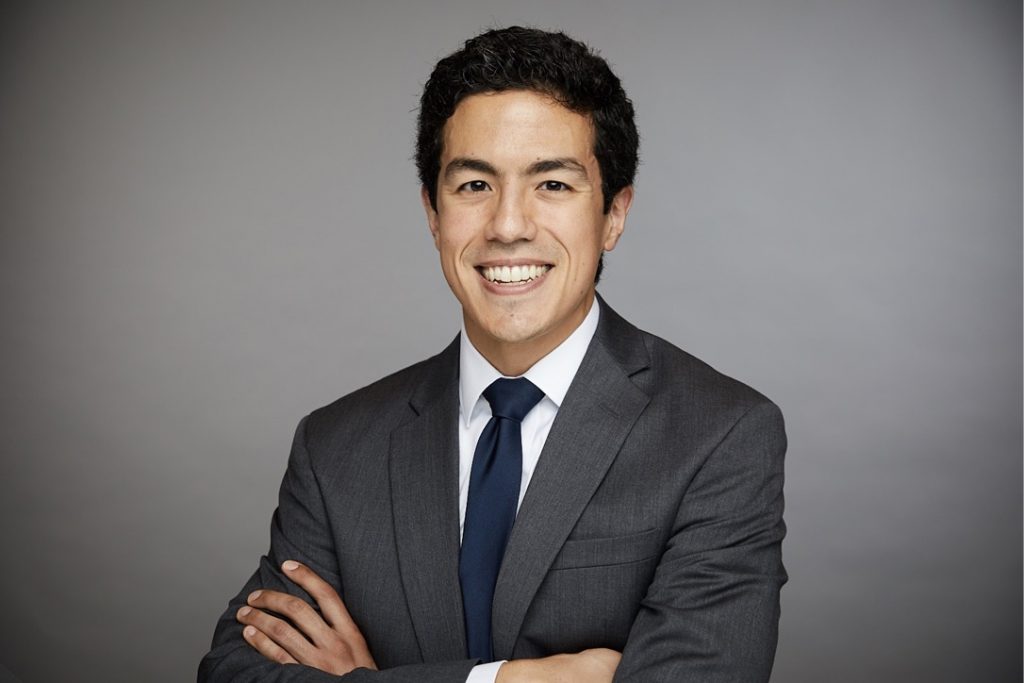Steven Arrigg Koh, the inaugural recipient of the Marianne D. Short and Ray Skowyra Sesquicentennial Assistant Professorship at Boston College Law School, is a scholar with expertise in criminal law and procedure with a particular emphasis on the international aspects of US cases. He recently participated in a symposium on racial subordination and structural marginalization. He talks here about the importance of that symposium in the context of his own scholarship and the deepening conversation about America’s reckoning with criminal justice inside and outside its borders.
Why did you want to be part of this symposium and what was your role in it?
The symposium, entitled Reckoning & Reformation: Reflections and Legal Responses to Racial Subordination and Structural Marginalization, arose in the wake of the killings of George Floyd, Breonna Taylor, Ahmaud Arbery, and many others in 2020. The subsequent national protests, compounded by the COVID-19 pandemic, galvanized some legal scholars of color to organize a symposium to analyze how the United States is, once more, grappling with its legacy of racial subordination and structural inequality. As the symposium organizers noted, “we would be remiss if we did not offer our collective assessment of this moment.” The symposium was jointly organized across several law schools and their law reviews, including Yale Law Journal, Harvard Law Review, Duke Law Journal, and California Law Review.
My contribution, Othering Across Borders, 70 Duke L.J. Online 171 (2021), examined the extraterritorial dimensions of race and US criminal justice. It exposed a phenomenon I called “othering across borders,” in which racial animus incentivizes US political and prosecutorial actors to promote domestic solidarity through prosecution of foreign defendants and sanctions on non-white International Criminal Court (ICC) actors. In particular, I focused on how the Trump Administration both “othered” foreign defendants—particularly Asian defendants—at the same time President Trump publicly used anti-Asian rhetoric around COVID-19. I also explored how Secretary of State Mike Pompeo imposed sanctions on the ICC’s Chief Prosecutor Fatou Bensouda (a Gambian national) and the Head of the Office of the Prosecutor’s Jurisdiction, Complementarity, and Cooperation Division, Phakiso Mochochoko (a Lesothan national). In sum, I argued that “[o]ur moment of reckoning for criminal justice does not stop at our borders.”
What impact did it have on your field of scholarship, and how has it informed your own scholarship?
The symposium was held over Zoom, and focused on eight themes: (1) critical theory, (2) social movements, (3) policing, (4) political economy and private ordering, (5) criminal justice, (6) comparative and international, (7) public health, and (8) democratic institutions. Every symposium contribution was timely, original, and engaging. My own contribution fell within the policing category, though it was relevant to others, such as comparative and international.
Regarding impact, I have a short-term belief and a long-term hope. My short-term belief is that this symposium advanced the voices of many legal scholars of color, thus contributing to our academic and national racial discourse. My long-term hope is that the symposium will prompt positive structural change along all eight themes identified above.
As for my own scholarship, the symposium gave me an opportunity to explicitly address the racial dimensions of my work on transnational and international criminal law. In an article called Foreign Affairs Prosecutions, 94 N.Y.U. L. Rev. 340 (2019), I wrote about US prosecutions with a nexus to a foreign country, as well as the implications of such cases for defendant rights and foreign policy. I have fleshed out other aspects of such cases in Core Criminal Procedure, 105 Minn. L. Rev. 251 (2020) and The Criminalization of Foreign Relations, 90 Fordham L. Rev. __ (forthcoming 2021), which consider, respectively, questions of cross-jurisdictional criminal procedural rights and the function of extraterritorial law enforcement policy in foreign relations. Often, I am exploring institutional questions—for example, dynamics between the White House, the US Department of Justice, and the US Department of State—as well as how such cases are playing out in US courts. The Reckoning & Reformation symposium provided a platform to squarely address the role of race in such cases.
What role does the academic legal community play in responding to structural marginalization and issues of race?
I have practiced law domestically (federal prosecutor at the US Department of Justice, law clerk for the US Court of Appeals for the Fifth Circuit) and internationally (various positions at the ICC and UN International Criminal Tribunal for the former Yugoslavia). I am very grateful to have a granular understanding of the reality of criminal legal enforcement domestically, transnationally, and internationally.
Since joining the Boston College Law School faculty in 2019, I am now grateful to be in an academic environment wherein serious scholars read, write, and theorize about complex questions of law, justice, and culture. This is the comparative advantage of the legal academic community: the time to reflect and advance ways to redress challenging contemporary issues. Among the most pressing today is our American racial legacy, and scholars have an obligation to contribute.
What would you like to see for the future of faculty of color in the academic legal community?
I often tell my students that a diversity of perspectives enriches virtually any conversation. Thus, I believe the legal academy should continue to deepen its commitment to fostering a more inclusive environment for faculty of color. In the interim, my humble hope is that the Reckoning & Reformation symposium makes a valuable scholarly contribution across a broad range of legal academic disciplines.
Interview by Sam Bader


